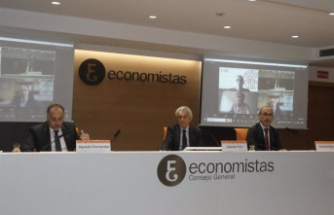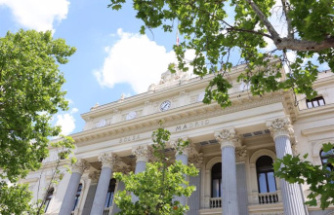Quebec is fortunate to have on its territory most of the minerals essential to the electrification of transport, but it will not be possible to exploit these resources without significant government investments, estimates one of the leading figures of the 'industry.
“I am hyper optimistic for Quebec for the next 20 or 30 years,” said Pierre Lassonde during a telephone interview with Le Journal.
Born in Saint-Hyacinthe and now 75 years old, Mr. Lassonde made his fortune in gold in Nevada and elsewhere in the world. Although he lives in Toronto, he closely follows the Quebec mining sector.
“Environmentalists and those who advocate the decarbonization of the world do not realize that an electric car needs a lot more copper than a gas-powered car,” he says.
“Copper is the metal that powers our civilization today and it will become three times more important over the next few decades,” adds Mr. Lassonde. These mines do not exist, we have not yet discovered them. Same thing for nickel and cobalt. These are all metals found in Quebec. »
Paid for Quebec
He is convinced that exploiting these resources will enrich Quebecers.
"The beauty of a mine is that once it's discovered, it stays there and the jobs you create are the best-paying blue-collar jobs in the world," he says, referring to salaries that can close to $200,000 a year.
The problem is that several other states in the world are starting with a head start on Quebec.
“If it were easy to discover mines, the price of gold would not be nearly 2000 US dollars an ounce, recalls Pierre Lassonde. The challenge that Quebec has is that only 5% of Quebec territory has been explored. The thing is, exploration costs are much higher there than they are in Nevada or Mexico because it's remote, it's cold, it's dark in the winter, you can't work year-round, it takes helicopters..."
The multimillionaire is therefore delighted that the Legault government has not completely abandoned Jean Charest's Plan Nord.
“What the Plan Nord does is make infrastructure available, such as roads,” he says. It helps enormously to lower exploration costs [...] so that they are competitive with those of other States. [...] There will be world-class mines in the Nord-du-Québec region, but to discover them, we will have to spend hundreds of millions of dollars on exploration. It will take years. »
The lithium challenge
As for the essential lithium, Pierre Lassonde puts a “flat” on the potential of Quebec.
"Lithium is a very widespread metal in the earth's crust, there is no shortage of it," he points out. The question, in the end, is: does Quebec want to have a cutting-edge industry in this sector and can we reach a critical mass, that is to say be big enough to have factories set up in Quebec and avoid simply mining to send the material elsewhere? »
The businessman does not take offense to the fact that almost all of the mines here belong to interests from outside Quebec, recalling that this is a very investment-intensive industry.
“Do you think you can get this capital only in Quebec? Impossible. We must therefore recognize the importance of having capital that comes from all over the world. And we must not forget that more than 50% of a mine's profits stay in Quebec, whether in the form of taxes and salaries. »
Big mistake from the past
That said, Mr. Lassonde still regrets today that governments allowed the sale of several Canadian mining giants, including Alcan, Inco and Falconbridge, in 2006 and 2007.
“It was a very serious mistake to let them go,” he laments.
Pierre Lassonde became a multimillionaire with gold, but he never invested in Quebec, which is nevertheless a major producer of this precious metal.
"In Quebec, I haven't yet managed to find a combination where my money could grow well enough for me," he says.
"Life did not give me that opportunity, but on the other hand, it gave me many others, so I can't have any regrets," he adds. If I had the chance, of course, there is nothing I would like more than to have 10 or 15% of a company that flourishes in Quebec, which would be a Quebec emblem. I would absolutely love that. »
Missed appointment...
In the early 2000s, when he was president of the American mining company Newmont, Mr. Lassonde became interested in the Éléonore gold deposit, located in Eeyou Istchee Baie-James.
“I had sent my best geologists to look at the deposit and when they came back, they said to me: “It is very difficult to see the continuity of the deposit. There are probably two or three million ounces of gold, but the costs [to extract them] are going to be high in our opinion. We wouldn't pay more than $200 million." And then Goldcorp came in with an offer of $500 million. I went back to my geologists and said to them, “Are you idiots? What did we miss?” I really wanted to get involved in the Quebec industry. But they stuck to it and in the end they were right,” he reveals.
...And ironically
Ironically, Newmont became the owner of the Éléonore mine when it acquired Goldcorp in 2019.
Last year, Éléonore produced 253,000 ounces of gold, less than half of what was expected in 2015. In 2018, Goldcorp had to write off US$1.4 billion due to the loss value of this asset. Building the mine and its gold concentrator had cost the company US$2 billion.
Despite everything, Pierre Lassonde believes that Newmont will keep Éléonore since its facilities are located in the heart of a region that probably harbors other quality deposits.













